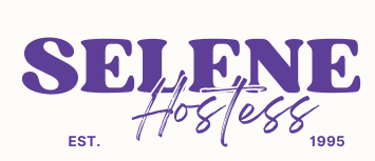Trends in the Hostess Profession: Modern Requirements and Skills
Explore modern trends for a hostess night club, key skills, and requirements. Learn how technology, communication, and cultural competence help you work in night club and build a successful career in hospitality and guest experience
11/5/20253 min read


The hostess profession has long been associated with hospitality, first impressions, and customer service. However, in the modern world, the role has evolved far beyond traditional duties. Today’s hostesses are not just the welcoming face of an establishment—they are multi-skilled professionals who influence customer experience, brand perception, and even sales performance. Understanding current trends, requirements, and essential skills is crucial for anyone aiming to thrive in this dynamic industry.
Evolution of the Hostess Role
Historically, hostesses were primarily responsible for greeting guests, managing reservations, and ensuring a comfortable atmosphere. Today, their responsibilities extend to social media interaction, event coordination, and customer relationship management. This evolution reflects broader changes in the hospitality and entertainment industries, where personalization and technology integration have become key drivers of success.
Modern establishments expect hostesses to possess a blend of soft skills, technical proficiency, and cultural awareness. A successful hostess must be adaptable, tech-savvy, and capable of handling high-pressure situations with poise.
Key Skills and Competencies
Communication and Interpersonal Skills
Effective communication remains the cornerstone of the hostess profession. Modern hostesses must engage with diverse clientele, manage complaints diplomatically, and create a welcoming environment. Fluency in multiple languages is increasingly valuable, particularly in tourist-heavy locations.Technological Proficiency
With the rise of digital booking systems, customer relationship management (CRM) software, and contactless check-in technologies, hostesses must be comfortable using modern tools. Knowledge of social media platforms and basic digital marketing principles is an added advantage, as many establishments rely on their staff to engage with clients online.Emotional Intelligence and Conflict Resolution
Handling difficult customers gracefully is a key skill. Emotional intelligence allows hostesses to read social cues, de-escalate conflicts, and maintain a positive atmosphere. This skill is particularly important in high-end restaurants, hotels, and event venues.Cultural Competence
In a globalized hospitality market, understanding cultural nuances is vital. Modern hostesses interact with guests from varied backgrounds and must respect different customs, communication styles, and etiquette norms.Sales and Upselling Skills
The hostess role increasingly overlaps with revenue generation. Being able to recommend menu items, suggest premium services, or inform guests about promotions without seeming pushy is a subtle but powerful skill.
Emerging Trends in the Hostess Profession
Integration of Technology
AI-powered reservation systems, digital waitlists, and virtual concierge services are becoming standard. Hostesses need to understand these systems, troubleshoot basic issues, and guide guests through tech-based services seamlessly.Personalization and Guest Experience
Today’s guests expect tailored experiences. Hostesses play a key role in gathering information about customer preferences, anticipating needs, and creating memorable interactions.Sustainability Awareness
Increasingly, establishments emphasize eco-friendly practices. Hostesses may need to communicate sustainability initiatives, such as local sourcing of products or waste reduction efforts, enhancing the brand’s image.Health and Safety Expertise
Post-pandemic, knowledge of hygiene protocols, crowd management, and safety regulations is crucial. Hostesses often serve as frontline educators for guests regarding safety policies.Flexible Work Arrangements
With the rise of events, remote venues, and pop-up experiences, hostesses are expected to be mobile and adaptable to various work environments. This flexibility requires excellent time management and quick adaptability.
Professional Development and Career Path
Modern hostesses benefit from formal education in hospitality, customer service, or languages, although practical experience often outweighs credentials. Training programs increasingly focus on soft skills, technological literacy, and international hospitality standards. Career advancement can lead to supervisory roles, event management positions, or marketing and PR functions within the hospitality sector.
Conclusion
The hostess profession has transformed into a multifaceted career requiring a blend of interpersonal, technical, and cultural skills. Modern hostesses are expected to create exceptional experiences, manage technology-driven systems, and embody the brand’s values. Staying updated with trends, investing in continuous learning, and cultivating emotional intelligence are essential steps for anyone aspiring to succeed in this evolving field. As customer expectations continue to rise, the hostess profession will remain a critical component of the hospitality and service industry, adapting continuously to meet new challenges.
